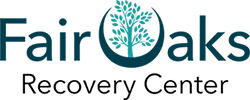 There is a tendency when one is living in addiction to also develop the bad habit of seeing oneself as a victim.
There is a tendency when one is living in addiction to also develop the bad habit of seeing oneself as a victim.
There is a strong connection between addiction and trauma. Additionally, people with mental health issues sometimes become addicts by trying to use alcohol and other drugs to self-medicate when medical care is not available or not something they are comfortable accepting.
It is important to recognize how past pain contributed to bringing a person to where they are now. It is possible that these past experiences made the person feel helpless, powerless, and unable to have control over their own life.
It is also critical to realize, however, that the thinking that got a person into an addiction won’t get them out of it. Mental change is needed to bring about lasting recovery. A person who wants to overcome their addiction must stop allowing anyone or anything but themselves to determine their success.
Fault Versus Responsibility
Sometimes it feels better to be able to blame another person or scenario for regrettable decisions. Placing fault on someone else shifts responsibility, however. It gives away power that rightfully belongs to the person trying to find recovery.
In a short video he posted online, actor/musician Will Smith said, “As long as we’re pointing the finger and stuck in whose fault something is, we’re jammed and trapped into victim mode…The road to power is in taking responsibility.” Smith goes on to clarify that while something can be the fault of one person, the person who is impacted is responsible for their own life, their own heart, and their own future.
He further states that taking responsibility isn’t the same as admitting fault. For example, it may be the fault of an addicted person’s parent that they suffered abuse as a child, but that parent likely won’t do anything to fix it after the fact. It isn’t an abused person’s fault they were abused, but it is their responsibility to find a therapist, talk to a trusted friend, seek out their clergy, or otherwise find a way to work through their pain in a way that keeps past trauma from taking over their life.
Although Smith hasn’t personally struggled with addiction, he has watched his wife and sister move into recovery. His perspective as a concerned family member is worth considering as you continue on your personal recovery journey.
Change the Labels
One step in taking back power over one’s life is to change the language used about the past. A victim is a person who has no power. They are at the mercy of people who are more powerful than they are and who have control over that victim’s life.
Adults who are profoundly mentally disabled and children often fit the criteria of being victims because they cannot make their own choices, they often don’t have the capability to understand what is going on around them, and they seldom have the ability to remove toxic relationships from their lives. They generally imitate behavior taught or reinforced to them by caregivers because they don’t know any better way to live.
Survivor Mindset
A person in recovery must be able to recognize that while they were possibly once a helpless victim, they aren’t anymore. Most adults are able to decide if they wish to continue unhealthy relationships. They can choose to attend or not attend therapeutic services to help them overcome past traumas and break unhealthy cycles. They are able to develop better coping skills than what were available to them before.
Most importantly, a survivor is someone who has hope. It’s someone who is strong and powerful. An adult can make a conscious choice to become a survivor—someone who has come through the trials of their past and taken ownership of their future. Goodtherapy.com offers some suggestions for how a person can move from being a victim to being a survivor.
Build Emotional Resilience
Resilience is our ability to handle situations, roll with the punches, and continue on with our life. Resilience is a tool a person can use to transform from being a helpless victim to being a survivor who is in charge of their own decisions.
Verywellmind.com suggests that the following are tools a person can leverage to strengthen their own emotional resilience:
- Emotional awareness: Understanding how they and others feel
- Perseverance: Trusting in the process and not giving up
- Internal locus of control: Believing that they are in control of their own lives
- Optimism: Seeing the positives in most situations and believing in their own strength
- Support: Knowing the value of social support
- Sense of humor: Laughing at life’s difficulties
- Perspective: Learning from mistakes, considering obstacles challenges, and allowing adversity to strengthen them
- Spirituality: Staying connected to their spiritual side
Seek Accountability
It is not always easy to know if an old habit, such as having a victim mindset, is being broken. It is sometimes easier to see improvements or setbacks, when working with others, or keeping track of thoughts in writing.
Accountability can be found in several different ways. For example:
- AA/NA sponsor: Your sponsor knows what it is like to be new to recovery and can often recognize unhealthy thought patterns.
- Therapy: Attending therapy can help to process thought patterns that are victim oriented and to find better ways to think about situations.
- Sober supports: Support groups can be a good place to check in about taking personal responsibility for your actions.
- Journal: Your journal is good place for goal setting and checking mental patterns. It can be shared with a therapist, if desired.
Fair Oaks Recovery Center can help people who are addressing their addiction to find new ways of thinking about their lives and reclaim control over their own choices.



 There is a tendency when one is living in addiction to also develop the bad habit of seeing oneself as a victim.
There is a tendency when one is living in addiction to also develop the bad habit of seeing oneself as a victim.